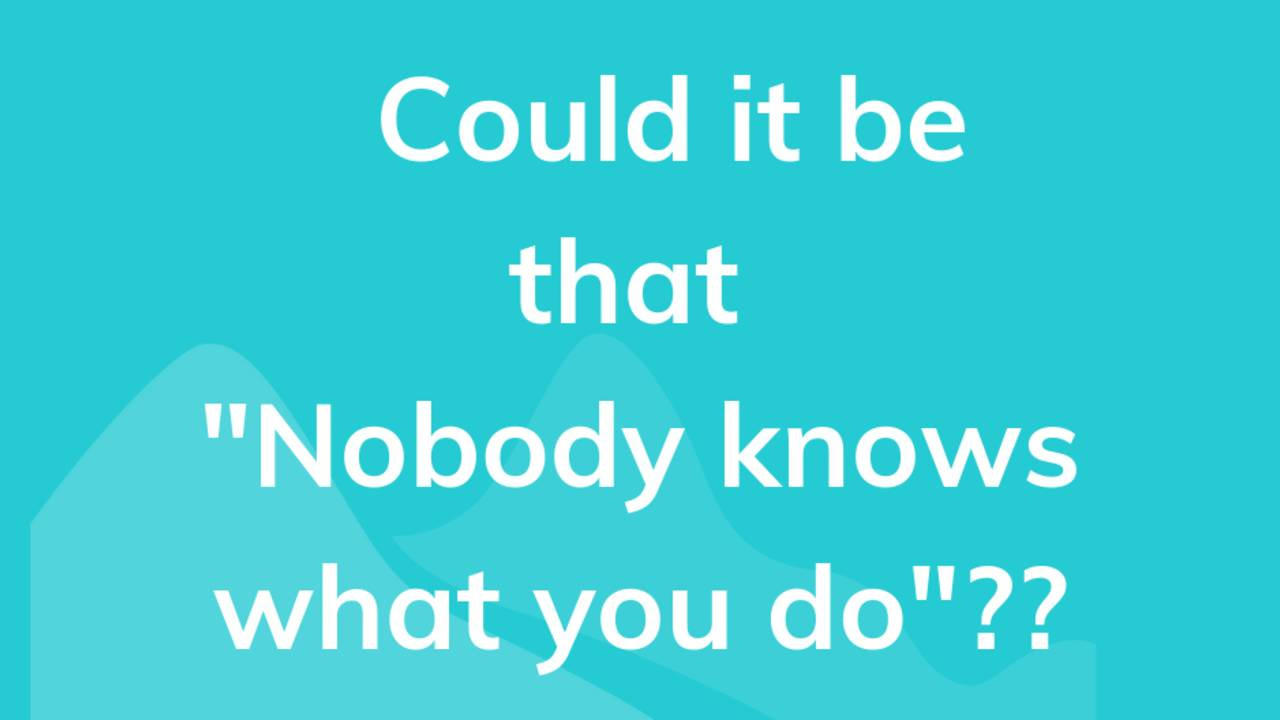
"Nobody knows what you do" - could that be?
Looking back on the summer
The children go back to school next week. In our house, we’re in “the-summer-is-over-it-was-a-great-summer” frame of mind as we do the last-minute checks that we have everything on the booklist and all the uniforms are labelled. Yesterday over Sunday dinner, we were reminiscing over what we had done and where we had been over the past 8 weeks of the school holidays.
Our personal highlights aside, one big theme has emerged for me from my own staycations this summer. If I were to translate it into a piece of advice for tourism businesses, it would be “Nobody knows anything about you!”.
When visitors ask for recommendations of what to do today
What do I mean? Many times over the holidays, in hotel receptions, visitor centres or cafes, I’ve observed visitors asking staff for recommendations of what to do today or over the few days of their stay. Particularly when it’s raining and what they had planned is no longer appealing. Or say instead that they came to do the hero experience but are staying a couple of days, happy to figure the rest out once they get there.
While there are definitely many places whose team put great effort into helping visitors in these situations, there are also many occasions where the answers are underwhelming. Yes, the hero attractions or must-do experiences get recommended e.g. The Giant’s Causeway, The Rock of Cashel, The Cliffs of Moher, Kylemore Abbey, The Greenway, the award-winning restaurant. The Top 5 are probably fairly consistently recommended in every destination.
But they’re the ones the visitors knew about anyway – they’re probably the things they came for. Beyond that, little gets mentioned. Of those other options that do get mentioned, often very little detail is forthcoming. A visitor might ask ‘Do you know what time they open?’ or ‘is there parking there?’ or ‘can I eat there?’ and the person just wouldn’t have that information.
Yet I know that so much more is available all around. I’ve observed these conversations where there are stands of visitor information nearby with a leaflet about the exact experience under discussion, yet they are not consulted. I’ve observed it in places where I know experience providers have put time into visiting the hotel/restaurant/attraction to let them know what they offer.
I’ve thought how very soul-destroying this is for the smaller operators and the destination managers. This moment of golden opportunity to keep visitors staying longer and spending more in the destination slips by. And I say that not in a way that’s about coldly extracting what we can from visitors – these are about moments when the visitor is actively seeking information, actively looking for things to do and see, really wanting more information about what’s on offer.
The Day 2 and Day 3 Experiences are so valuable
I once heard reference to ‘The Day 2 and Day 3 Experiences’ – the ones that visitors go to next after they’ve done the flagship must-sees and must-dos, the gems that bring visitors a little way off the beaten hotspot track and into the heart of local destinations. From a destination perspective, these are just as crucial as the hero attraction. Each as a role - the honeypot brings people into the destination, while the Day 2 and Day 3 Experiences are what makes visitors stay in the destination. These are the ones that add great value to the local economy and community because they involve an overnight and they involve visitors spending more and spreading that spend around a greater area. They also are the ones that move the visitor from just doing what everybody else does to an experience that is more tailored, unique and personalised.
A gap between what providers think others know and what they actually know
There is a real gap here. Experience providers are often very much of the view that ‘people know what we do’, ‘sure, we’ve been doing it for 20 years now’, ‘I drop in leaflets there every week and say hello’, ‘I called in there at the start of the summer and let them know what we’re at’ or ‘aren’t we always on social media talking about ourselves?’…
So, my advice is start on the assumption that ‘Nobody knows what you do’. When you think about it, that’s not so surprising. It’s not their job to figure out what you do - they have their own jobs, responsibilities and distractions. People change jobs, new people start while others leave or change function. Apart from that, there’s so much information out there all the time, we all know how hard to distil it and to separate one thing from another.
What does this mean for your messaging?
If you want to be more than part of the ‘noise’ and want to build traffic from local referrals, start with this assumption that ‘Nobody knows anything about you’. This has implications for your messaging:
- It has to be very clear and distinctive.
- It has to be simple and memorable.
- It has to be repeated often.
- It has to reach a large number of people in other local businesses.
The biggest realisation is that the job of nurturing local referrals is never done.

